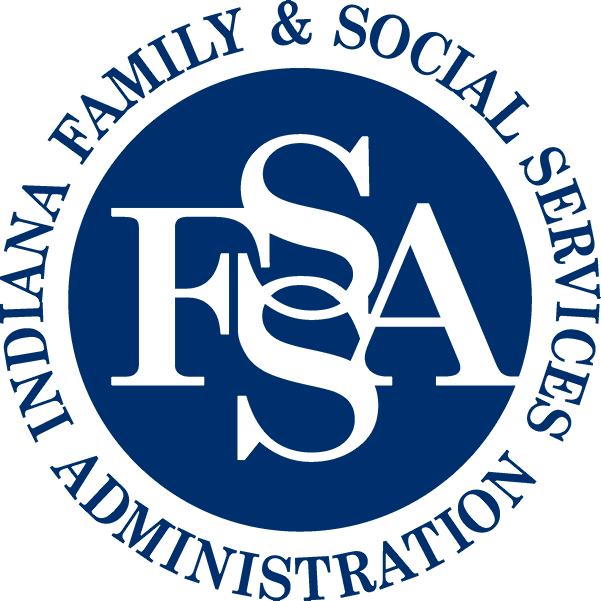Bureau of Child Development Services - First Steps
Your baby deserves a good start in life.
The goal of the Indiana’s First Steps System is the same as yours: To help Hoosier families make sure their infants and toddlers receive services to help them in the future.
First Steps brings together families like yours with a local network of professionals from education, health and social service agencies. Services are coordinated to give your child the widest possible array of early intervention resources. First Steps is available in every county in Indiana.
Who is eligible for First Steps services?
Families who are eligible to participate in Indiana’s First Steps System include those with children ages birth to three years old who:
- Are experiencing developmental delays.
- Have a diagnosed condition that has a high probability of resulting in a developmental delay.
- Click here for Qualifying Developmental Delays
What services are available? Services children may receive through Indiana’s First Steps System include:
- Assistive Technology Services
- Audiology
- Diagnostic Medical Services*
- Family Education
- Health Services
- Nursing Services
- Nutrition Services
- Occupational Therapy
- Physical Therapy
- Psychological Services
- Service Coordination
- Social Work Services
- Special Instruction/Developmental Therapy
- Speech Language Pathology
- Transportation
- Vision Services
Click here for a detailed list of available First Steps Services
* When needed for eligibility determination or service planning only.
What is a developmental delay?
The first three years of your child’s life are so important. Human learning and development are most rapid in the time from birth to age 3. That’s why it’s important to give a child the best start possible. The earlier a child with a disability or a developmental delay is diagnosed and gets help, the better that child’s ultimate quality of life.
The following checklist offers some examples of typical child development. Of course, every child develops at his or her own pace, but if your child shows a delay, he or she may benefit from a comprehensive developmental assessment.
How do families get their children into the program?
Families come to First Steps in one of two ways. Most families are referred to their local First Steps program by doctors, hospital staff, or other social service agency caseworkers. Others are “self-referrals,” contacting First Steps directly because they are concerned about apparent delays in their child’s development.
The first thing the First Steps Intake Coordinator can do to help your infant or toddler get help is to schedule an initial assessment and evaluation. This service is paid for by First Steps and brings you together with a team of professionals or multidisciplinary team to identify any developmental delay or disability and recommend early intervention services that may benefit your child.
After the initial assessment and evaluation, it may be determined that your child is eligible and in need of early intervention services. An ongoing service coordinator will assist you by being the one person responsible for coordinating with all the various agencies who may provide services for your child, minimizing “red tape” and saving your family time, energy, and needless expense.
First Steps is “family-centered” in that services can support your family in the daily routines and activities of everyday living. To do this, you and the Service Coordinator sit down together to review the results of the assessment. Based upon your concerns, you will discuss what services your child may need, what resources are available to you in your community, what your family’s priorities are, what your family’s resources are and last, but not least, your hopes and dreams for your child.
This information then is written into the Individualized Family Service Plan (IFSP), which is a “road map” or action plan for the services your child and family may receive. It includes your major goals for your child; how progress will be measured; what and where services will be provided; when they will begin and for how long; methods of payment; and transition upon the child’s third birthday.
1-2 months
Turns head in direction that cheek is touched
Able to suck and/or swallow easily
Startles easily in response to loud noise
Gaining in length and weight
Pays attention to someone’s face in direct line of sight
3-4 months
Makes sounds other than crying
Holds a rattle and smiles
Rolls from stomach to back
Turns head toward bright light and color
Shows gains in height and weight
4-6 months
Reaches for and grasps objects
Moves toys from hand to hand
Smiles in response to others
Rolls from stomach to back and back to stomach
Balances while sitting for a few seconds
6-9 months
Creeps or crawls forward on tummy by moving arms and legs
Babbles and laughs out loud, plays pat-a-cake and peek-a-boo
Sits independently
Turns head to locate sounds
Shows gains in height and weight
9-12 months
Pulls to a stand
Picks up small objects
Crawls on hands and knees, walks with both hands held
Imitates simple sounds, waves “bye-by
